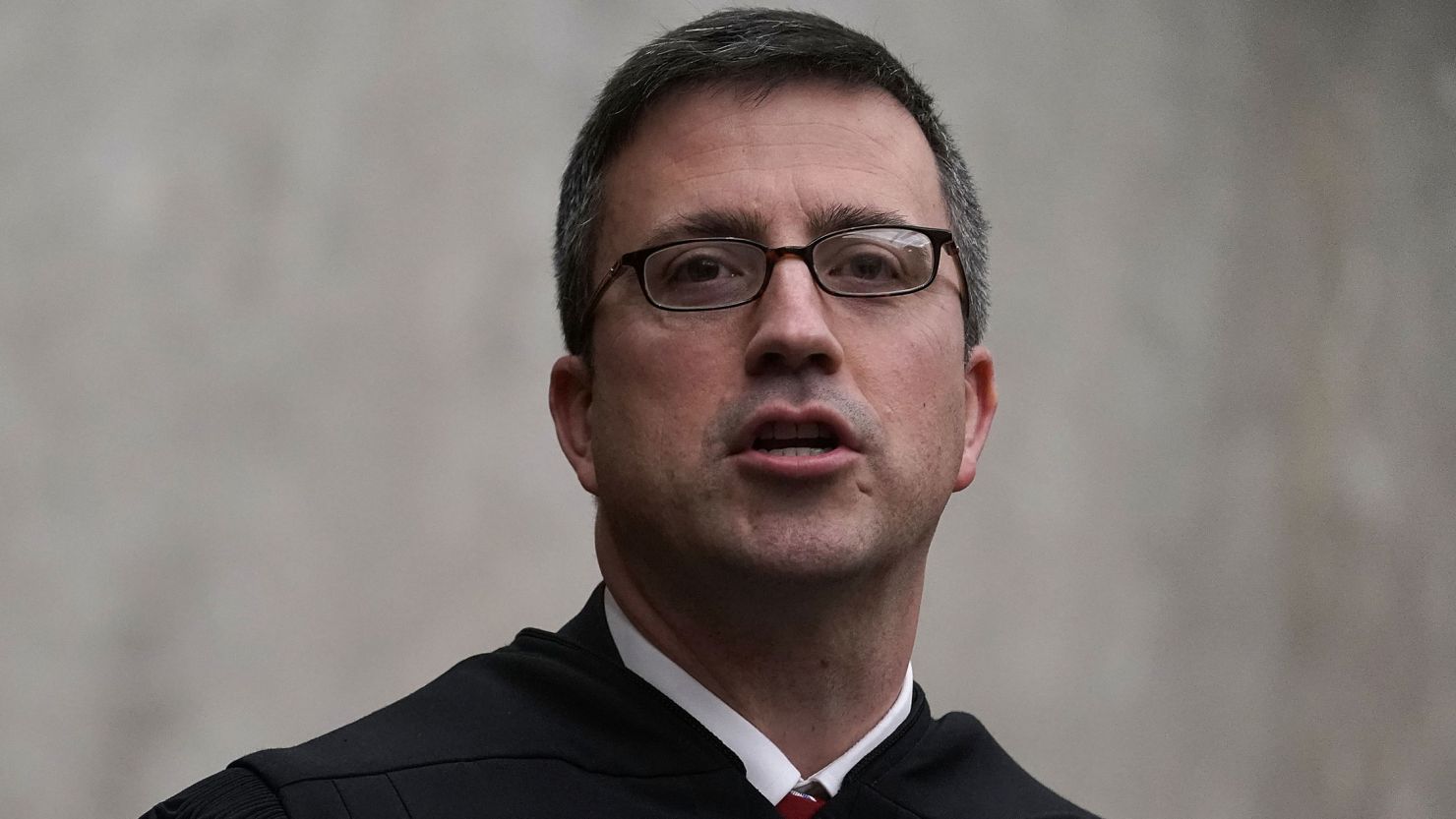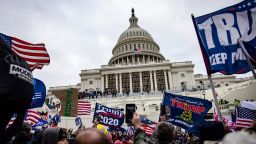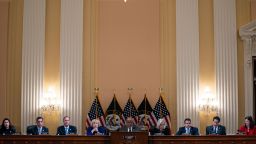Two Trump-appointed federal judges have rejected claims from January 6 defendants that they’re being treated unfairly, because of their conservative politics, compared with left-leaning rioters in Portland, Oregon, in the summer of 2020.
Judge Trevor McFadden on Tuesday became the second judge in two weeks to reject the comparisons, which are popular in right-wing circles, after his colleague in Washington, DC’s, federal court Carl Nichols made a similar ruling last week.
McFadden and Nichols both said the US Capitol riot defendants’ arguments didn’t have enough evidence to show discrimination.
In one January 6 case, defendant David Lee Judd had asked McFadden to dig into Justice Department records about prosecution decisions in Portland and DC, claiming he was being treated unfairly compared with similar defendants on the West Coast. The Capitol rioters were overwhelmingly Trump supporters unhappy with the 2020 election result, while many of the left-leaning protesters in Portland said they were fighting against racial inequality and police brutality in the wake of George Floyd’s murder.
McFadden refused Judd’s request on Tuesday, explaining that the Portland riots didn’t have the same severe consequences as the attempted coup on January 6.
“Although both Portland and January 6 rioters attacked federal buildings, the Portland defendants primarily attacked at night, meaning that they raged against a largely vacant courthouse,” McFadden wrote. “In contrast, the January 6 rioters attacked the Capitol in broad daylight. And many entered it. … Their actions endangered hundreds of federal officials in the Capitol complex. Members of Congress cowered under chairs while staffers blockaded themselves in offices, fearing physical attacks from the rioters.”
Judd is charged in a nine-person indictment related to a three-hour battle inside one of the Capitol tunnels. Prosecutors say he threw a firecracker at police while they tried to hold back the mob. He pleaded not guilty.
Nichols, weighing the case against another January 6 defendant, Garrett Miller, said on December 21 that the unrest in the two cities had “obvious differences” and the disruptions put hundreds of government officials at risk.
“The Portland rioters’ conduct, while obviously serious, did not target a proceeding prescribed by the Constitution and established to ensure a peaceful transition of power,” Nichols wrote. “Nor did the Portland rioters, unlike those who assailed America’s Capitol in 2021, make it past the buildings’ outer defenses.”
McFadden did criticize the Justice Department for dropping cases against the rioters in Oregon – decisions that prosecutors made during both the Trump and Biden administrations, he noted – calling the moves “suspicious.”
McFadden’s sharp words for the Justice Department are likely to fuel right-wing criticism of the aggressive approach that law enforcement has taken toward hundreds of January 6 defendants, many of whom are now casting themselves as political martyrs.
McFadden noted that the Justice Department ultimately dropped 27 cases against Portland rioters, including five that had charged felonies. “Rarely has the Government shown so little interest in vigorously prosecuting those who attack federal officers,” he wrote, echoing a similar critique he had made this fall. “Especially during moments of politically charged unrest, the Justice Department must strive for even-handed justice. Judd raises troubling questions about the Department’s adherence to this imperative in Portland.”
The Justice Department has also rejected these comparisons. Federal prosecutors have pointed out that many of the Capitol rioters bragged about their alleged crimes and posted photos online, while most of the rioters in Portland tried to obscure their identities by wearing masks and bandannas and rioting under the cover of darkness.




